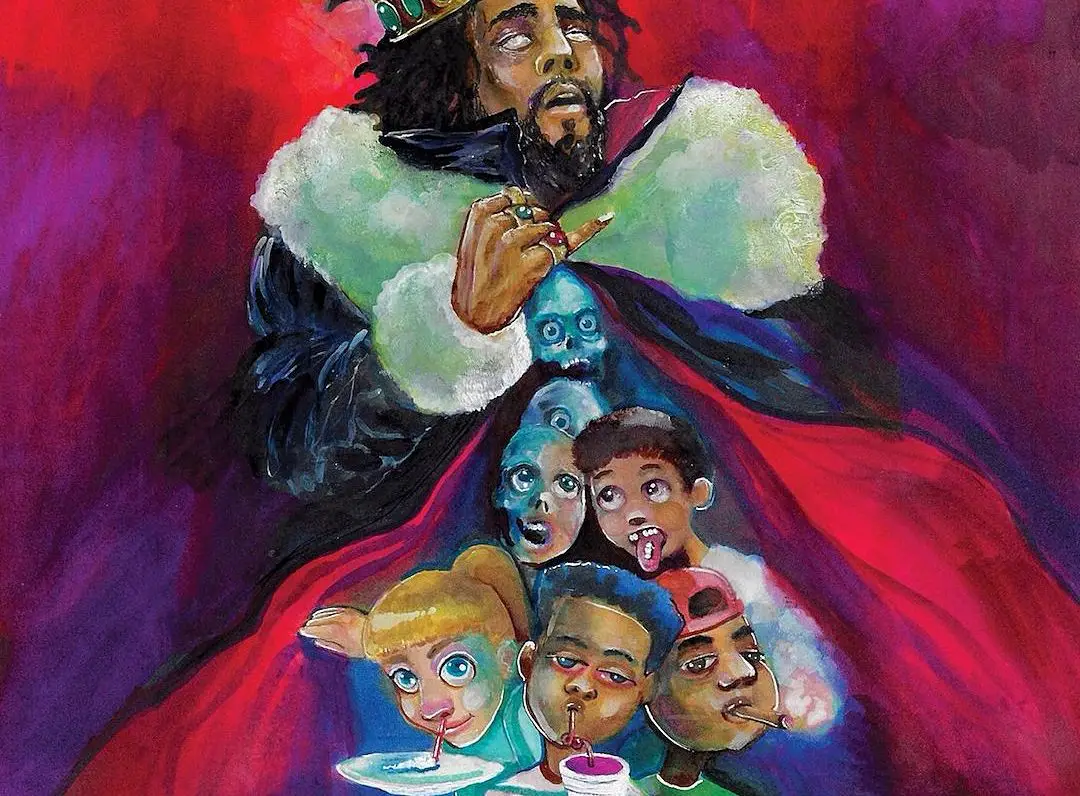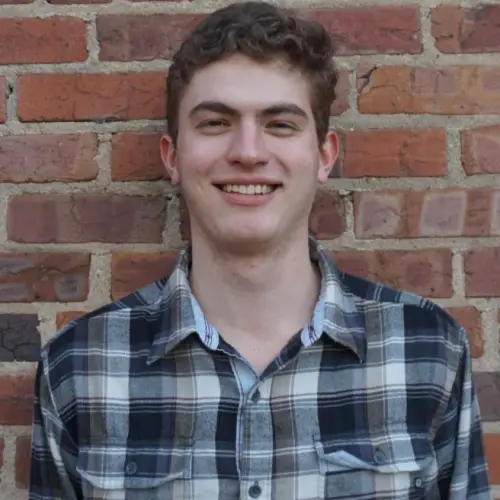J. Cole still reigns supreme. The numbers don’t lie — the Fayetteville, North Carolina, native topped all previous first-day streaming records with the release of his new album, “KOD,” on 4/20, totaling 64.5 million streams on Apple Music and 36.7 million streams on Spotify.
Nor do listeners appear to be losing interest either, as the album is nearing first-week-total records as well. While Cole’s previous albums demonstrate his exceptional talent for effortlessly telling life stories in three-to-four-minute intervals, his new album maintains that same style of delivery but focuses more on a different chapter of the hip-hop artist’s life: his experiences with modern drug culture.
Critiquing others
Cole does not shy away from discussing the faults of others. Two of the album’s tracks, “K.O.D.” and “1985,” have quickly ascended to mainstream recognition, and both songs exemplify Cole’s frustrations with drugs and the rap culture that promotes them.
The acronym “K.O.D.” has three meanings — “Kids On Drugs,” “Kill Our Demons” and “King O.D.” All three reference a society that increasingly promotes the use of marijuana and battles a crippling opioid-addiction problem.
In “K.O.D.,” Cole puts a significant amount of this blame on the shoulders of those who influence America’s youth, rapping, “This is what you call a flip / Ten keys from a quarter brick / Bentley from his mama’s whip / K.O.D., he hard as shit.”
The lyrics seem to be referring to “xanax rap,” a subgenre of hip-hop especially concerned with glorifying drug use, particularly the use of prescription pills. Cole’s words seem to mock those who flaunt their wealth and party for the public eye to see.
Not only does the Fayetteville native point to their flamboyant lifestyles, but he also criticizes the rappers for then using these lifestyle choices as justification for being “hard” individuals. Cole believes rappers such as Lil Pump, Lil Xan and Lil Uzi Vert benefit from a younger, impressionable generation’s desire to mimic their lives.
“1985” also questions the motives of these Soundcloud rappers. “Cause that’s exactly what’s expected when your skin black / They wanna see you dab, they wanna see you pop a pill / They wanna see you tatted from your face to your heels,” he raps.
Cole then begs the question: Are these artists genuine when they rap about their crazy lifestyles? Or are they feeding into a culture that thrives off of drama and breaking news? The blame lies with both these rappers and their fans.
While the words and actions of these artists may negatively influence their followers to partake in dangerous activities, their fans also push these rappers into public images that may not reflect their true selves. The end result is a trend that often deviates away from what is reality and instead creates an alternative reality for both the rappers and their fans.
Critiquing himself

While addressing issues with a modern, popular genre of music, Cole simultaneously criticizes himself for being a contributor to these problems. In songs such as “The Cut Off” and “FRIENDS,” Cole uses his alter ego, kiLL edward, to engage in an internal monologue about his insecurities.
For example, Cole pitches down the tone of his voice in “The Cut Off” and kiLL edward discusses the rapper’s apparent drug and alcohol habit: “Gimme drink, gimme smoke / Bottom line, I can’t cope / If I die, I don’t know / I don’t know, I don’t know.”
Cole admits to not always being the best role model for his younger fans while battling his own demons. Calling it a “cry for help” may be a bit extreme, but it appears that Cole undoubtedly has some issues of his own that, based on the content of his lyrics, stem from his fame, the formation of new relationships and the disappearance of certain old ones.
He further explores these inner conflicts in “FRIENDS.” Drugs, once again, are cast in a negative light in the song and cause psychological problems for the artist, as Cole raps, “My database of narcotics / It’s growing long … I wrote this shit to talk about the word addiction…What I’m trying to say is the blame can go deep as seas / Just to blame ’em all I would need like 20 CDs … Type of shit that normally would call for therapy / But you know just how it go in our community / Keep that shit inside it don’t matter how hard it be.”
Not only does he express disappointment with his own drug use, but he uses the opportunity to call out those who use personal and mainstream problems as an excuse for abusing drugs. At the same time, Cole sympathizes with those he knows who are struggling with addiction and claims that these habits are a result of the environment in which he and those close to him were raised.
Hope for the future
While J. Cole has consistently given his fans an authentic look into the inner-workings of his mind with stories from his youth and outlooks on societal issues, “KOD” is the first album in which the rapper has taken the opportunity to inquire about drug culture.
While the pace and sound of his lyrics make for some hits that are sure to find their ways into clubs and radios, the content of his verses exhibits a kind of pessimistic realism uncommon in mainstream music.
However, despite some gloomy viewpoints on aspects of hip-hop culture, Cole holds out optimism for the near future. Although the bulk of “K.O.D.” taunted Soundcloud rappers for their music and absurdly extravagant lifestyles, Cole ends the song with a point of positivity: “Power, greed / Money, Molly, weed / Percs, Xannys, lean, fame / And the strongest drug of them all / And the strongest drug of them all / Love.”
In defiance of the proliferation of drugs and their ties to rap music, Cole believes there is still a better way for society to cope with its problems. Communities may crave material things and become increasingly dependent on narcotics that alter reality, but ultimately the artist hopes people can resolve their inner demons by supporting one another.
The concluding lyrics of “KOD” in the track “1985” depict a similar yearning for perseverance. “Just remember what I told you when your shit flop,” raps Cole. “In five years you gon’ be on ‘Love & Hip-Hop.’”
While Cole again predicts that the current successes of Soundcloud rappers will soon fade, thus saying they’ll end up on the TV reality show “Love & Hip-Hop,” these lyrics could also be a message to his fans: drugs may be the current fad, but changes in coping methods are inevitable. Cole holds out hope that music and raw emotion will disburden the underlying demons for many.

















